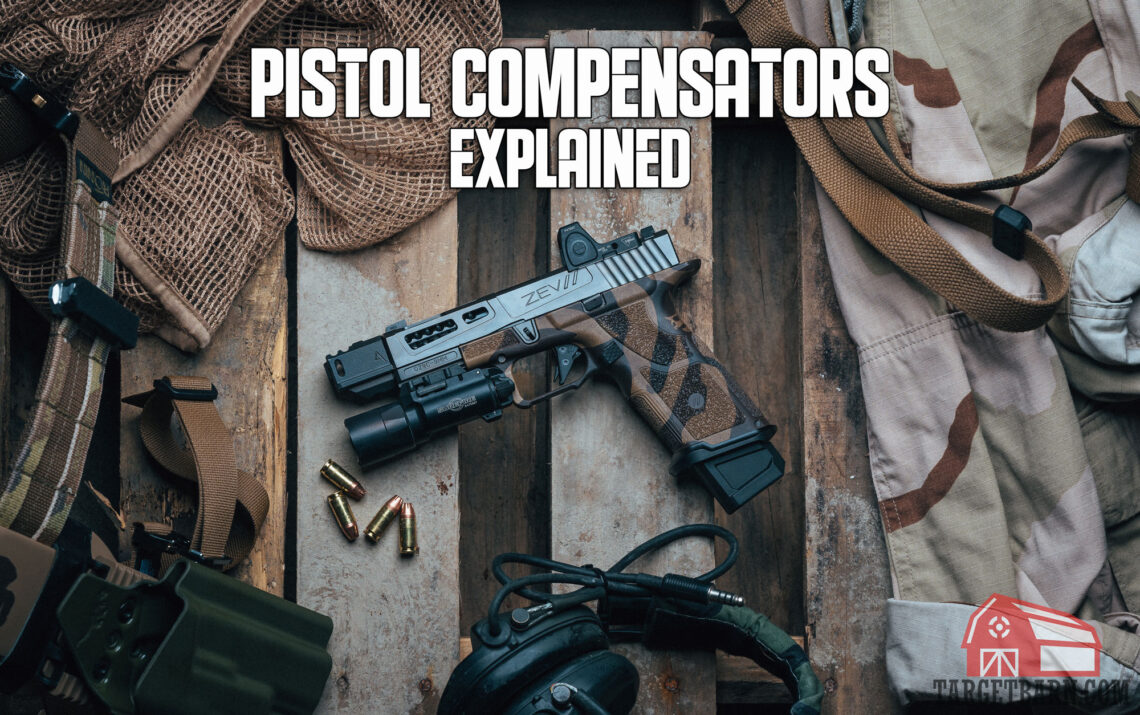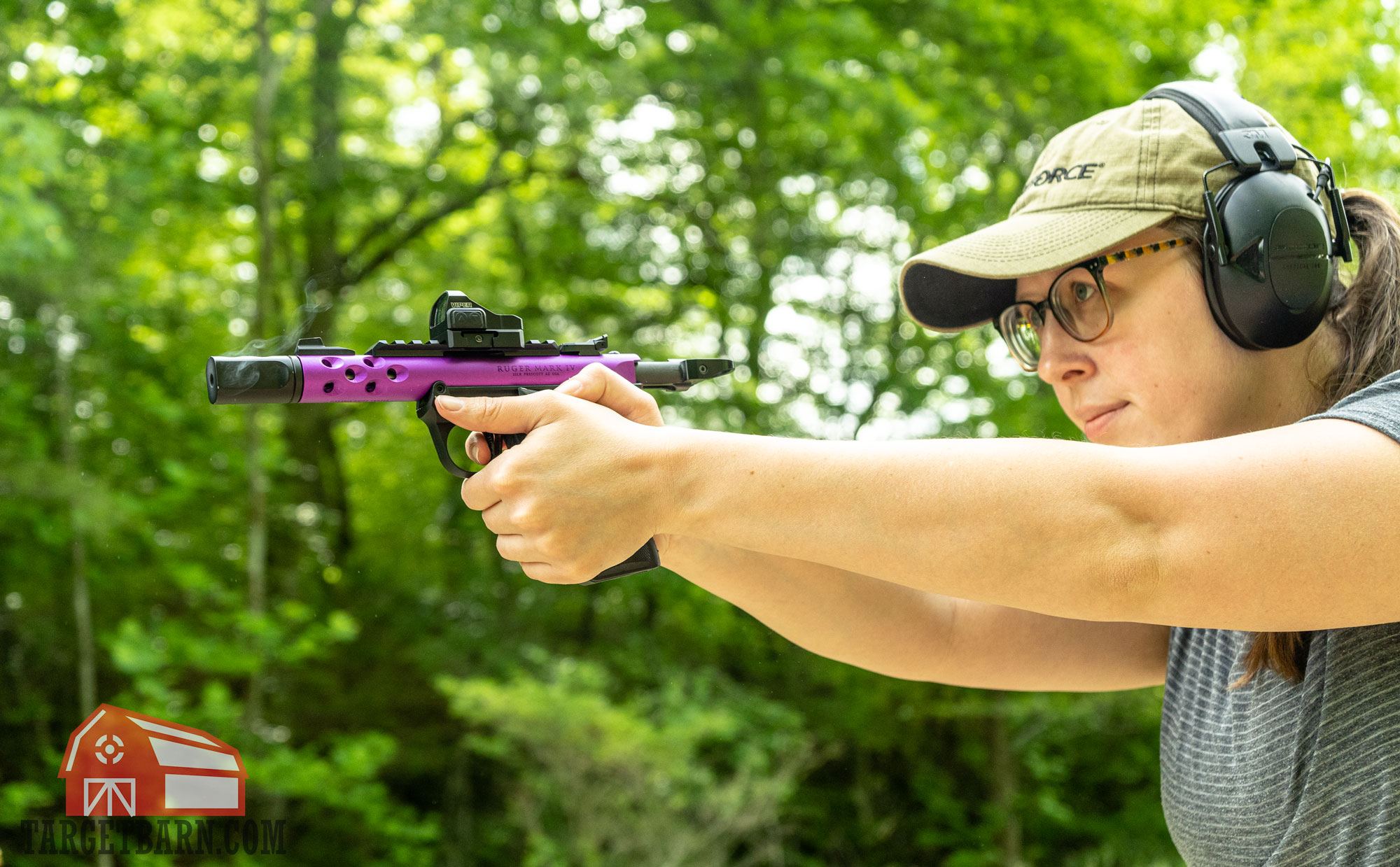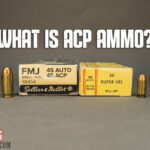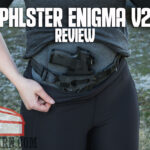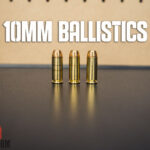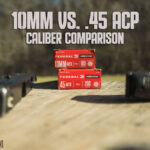If you’ve ever been to a public range, you’ve likely seen someone with a pistol compensator mounted on their handgun. For newer shooters, this may just look like a natural extension of the pistol. However, the pistol compensator is an attachment that serves an important purpose.
Let’s take a look at what exactly a pistol compensator does and why you might use one.
What Does a Pistol Compensator Do?
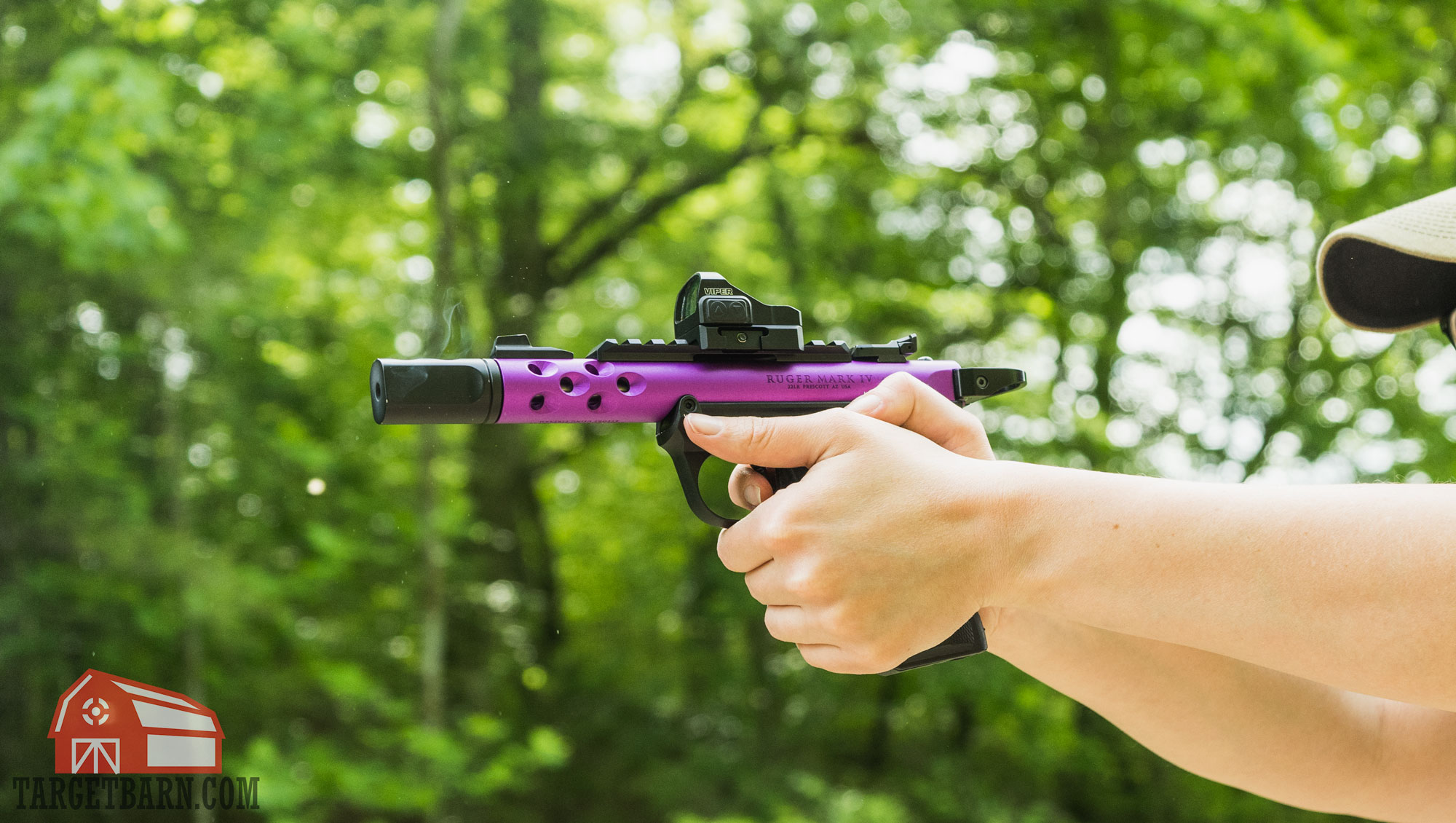
A compensator works on a rather simple principle: it directs the cartridge’s exploding propellant gases upward, which in turn reduces muzzle flip and recoil during ignition.
A compensator is fixed to the muzzle of a handgun or other firearm, typically via a threaded barrel. (Alternatively, holes may be machined into the topside of the barrel. A ported barrel is not a compensator, but it exploits physics in the same fashion to have a similar effect on performance.)
Advantages of a Pistol Compensator
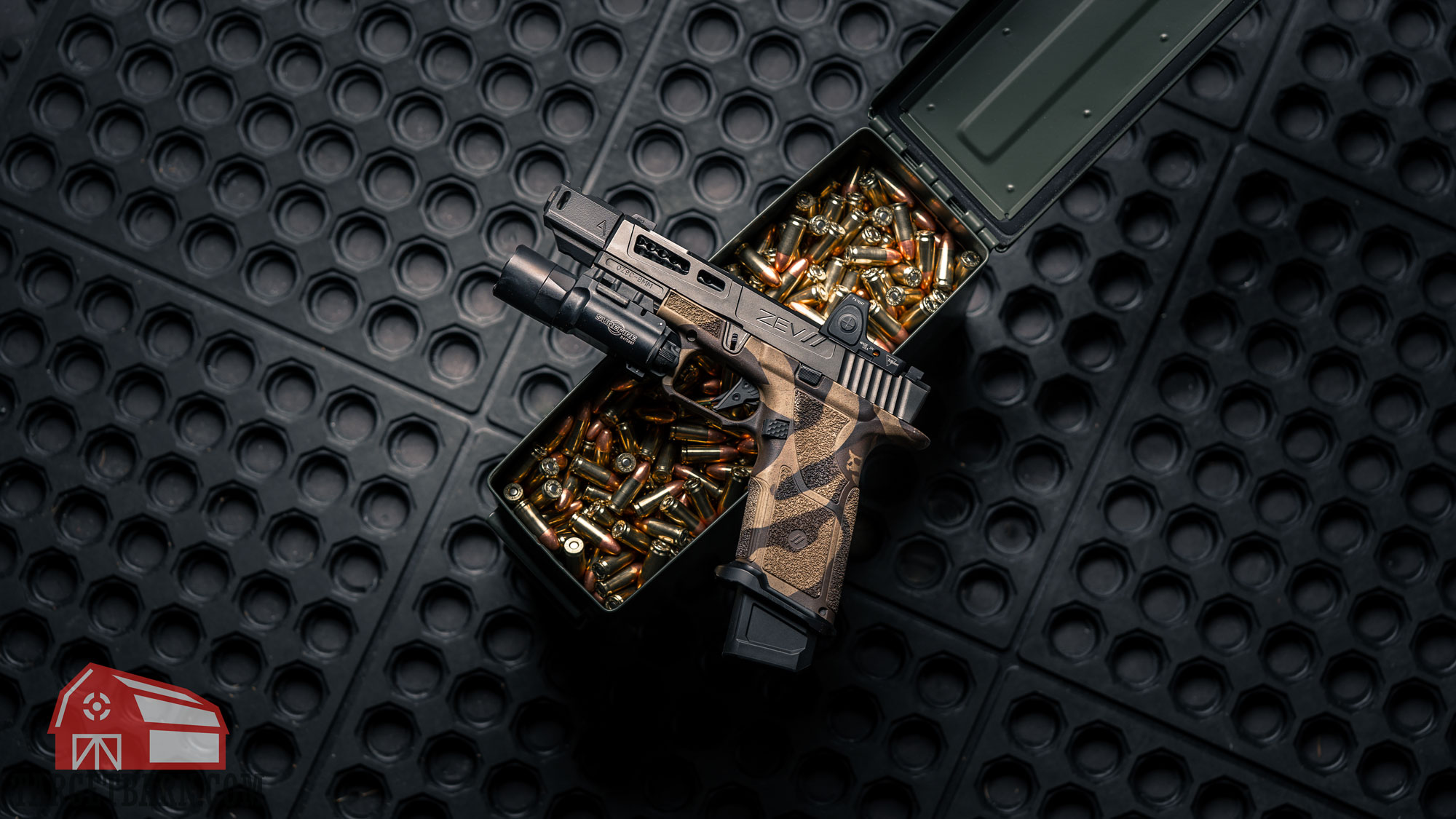
A compensator’s chief advantage is facilitating rapid fire. It causes the barrel of the gun to remain closer to its original position during ignition, which decreases the amount of time the shooter must spend restoring their aim on target after every shot fired.
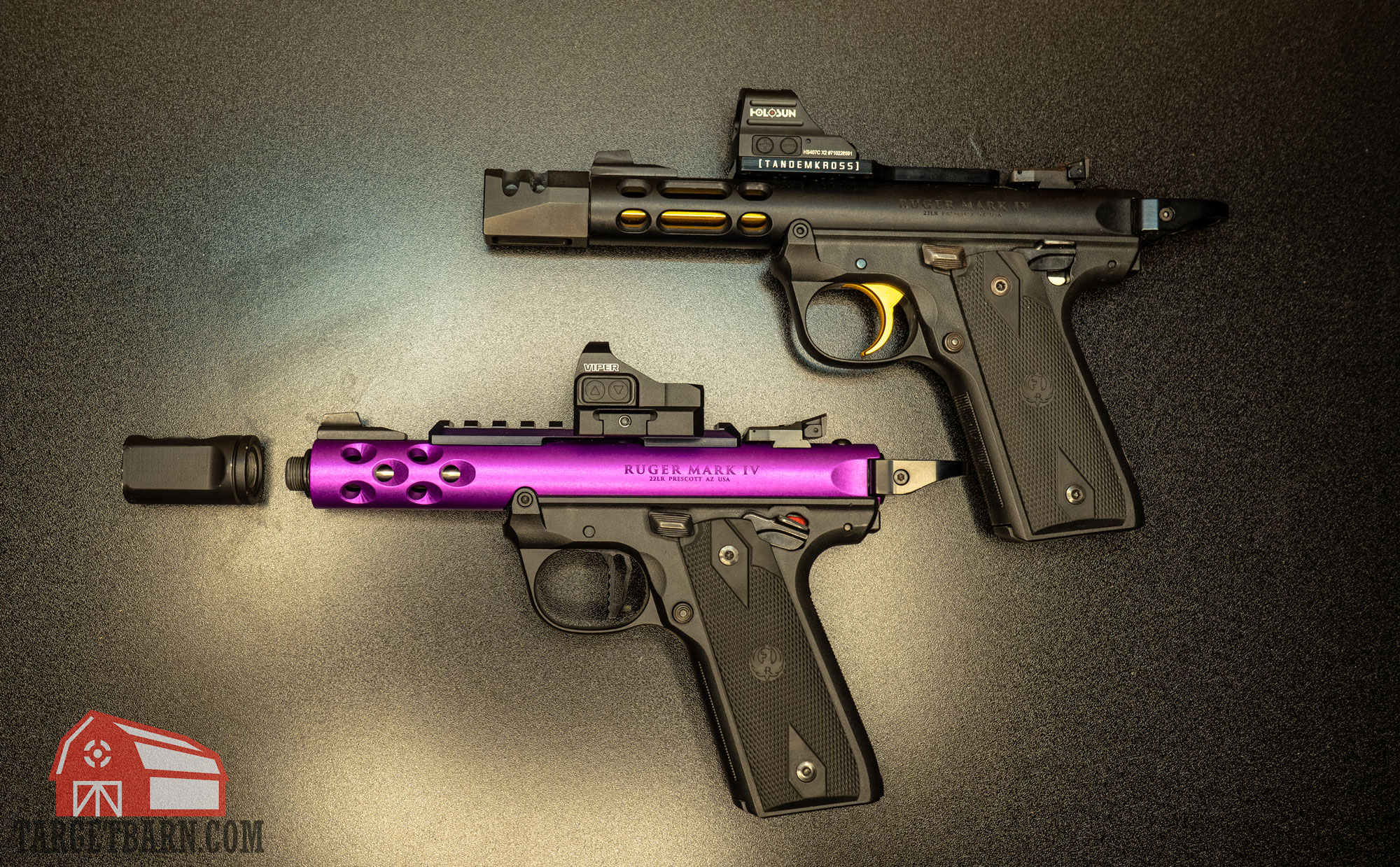
Compensators are popular at competitive shooting events where shooters vie to see who can empty their magazines quickest and with the greatest precision. Pistols like the Sig Sauer Spectre Comp Blackout are a great example of this. Compensators are also popular additions to handguns which would be used for self-defense. That’s because they make it easier to put more bullets inside the threat in a shorter amount of time.
Disadvantages of a Pistol Compensator
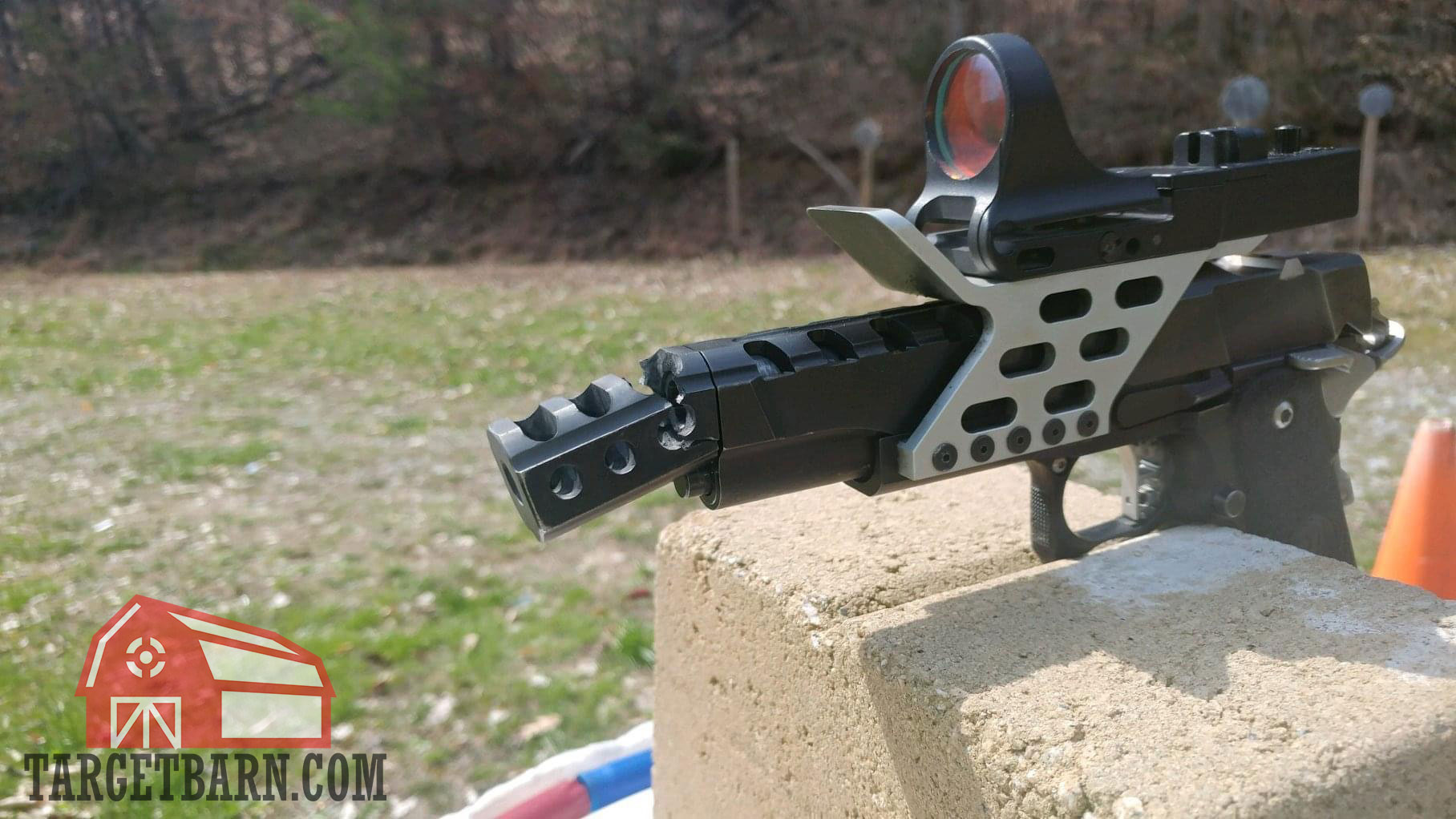
Like any firearm accessory, a compensator’s advantages don’t come without trade-offs. These are lower muzzle velocity, reduced safety, reduced night vision, front sight fouling, and incompatibility with shotshell cartridges.
Lower Muzzle Velocity
A compensator diverts exploding propellant’s energy upward instead of directly behind the bullet. It invests a portion of the cartridge’s limited amount of energy into reducing muzzle flip instead of merely propelling the bullet, which produces significantly lower velocity and striking energy as a result.
Reduced Safety
A compensator causes a handgun to dispel white hot gasses upward instead of merely forward. This isn’t a problem while you’re holding a handgun normally. But if a violent altercation ever forces you to fire in an awkward position, a compensator’s dorsal discharge may inflict serious burns to your skin or even blind you.
Reduced Night Vision
A flash of bright light will temporarily dull your vision if your eyes are already acclimated to a dark environment. A compensator emits bright, burning propellant gasses upward, directly into your line of sight, which may make it harder to remain focused on a fast-moving target during the nighttime.
Front Sight Fouling
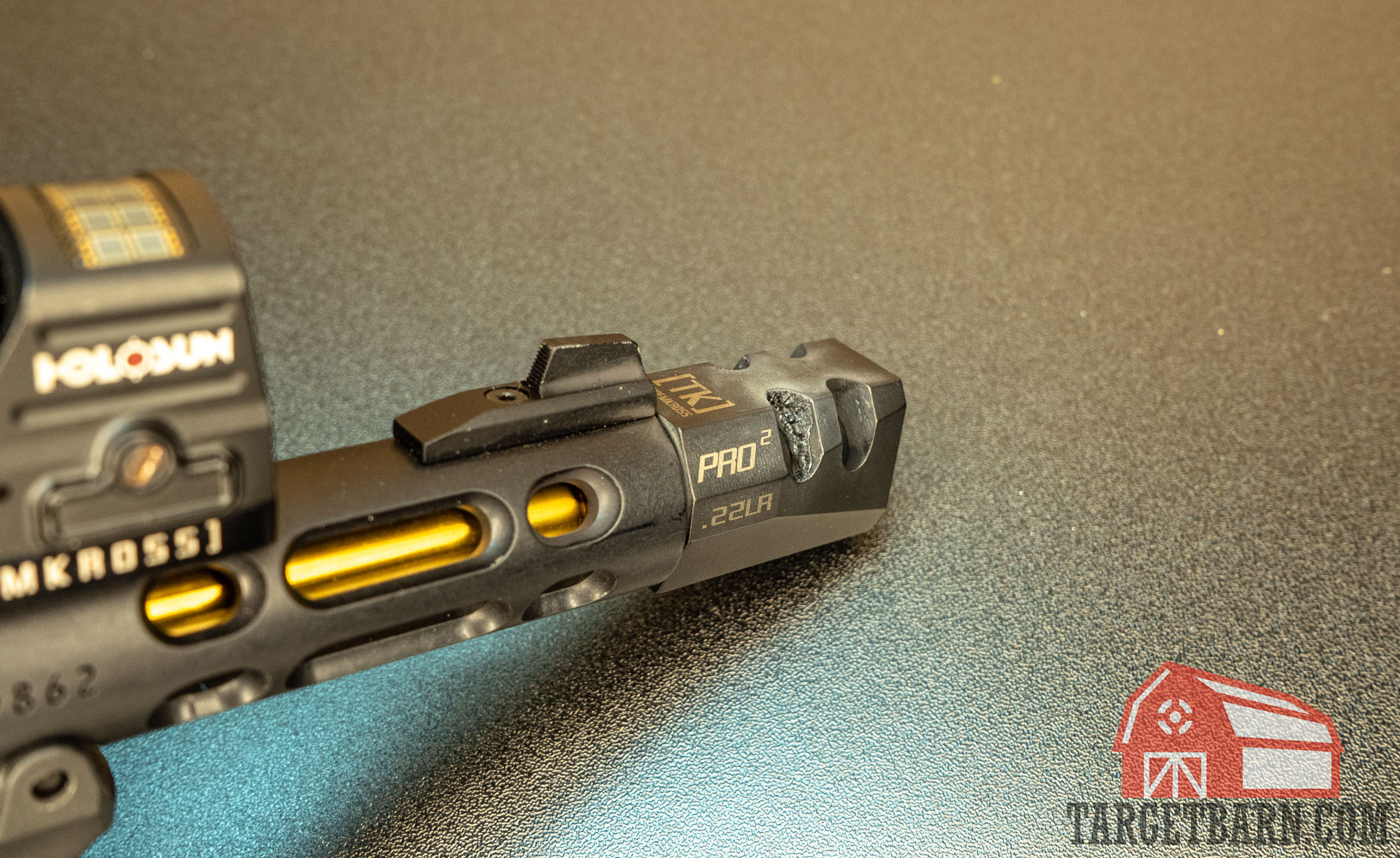
A compensator will deposit carbon residue on the handgun’s front sight. This is hardly a terrible setback, but it will necessitate more cleaning once target practice has concluded for the day. Note that compensators also contain multiple crevices which you must thoroughly clean regularly.
Incompatibility with Shotshell Cartridges
Compensators aren’t compatible with “shotshell cartridges” – i.e. pistol rounds that contain small charges of birdshot instead of single projectiles. A shot pellet can bounce off of a compensator’s port and deflect straight back at the shooter, which will prove to be an unpleasant experience for said shooter for reasons that don’t beg elaboration.
Is a Pistol Compensator Worth It?
A compensator may reduce muzzle rise by as much as 30% even if it features a single upward-facing port. This can significantly shorten the amount of time you have to spend aiming after firing each shot. Faster follow-up shots can spell the difference between life and death during a violent altercation. You simply cannot predict how many shots you would have to fire to incapacitate a determined threat. Even trained law enforcement officers typically fire multiple shots before neutralizing a threat.
Just make certain you understand which aspects of performance you are sacrificing before you add a compensator to your handgun. Weaker striking energy, a greater risk of injury, and impaired vision after firing your first shot in the dark can all be serious setbacks. You must regard a compensator as a risk-reward accessory. Therefore, you should test one out before you can confidently assess its potential utility.

